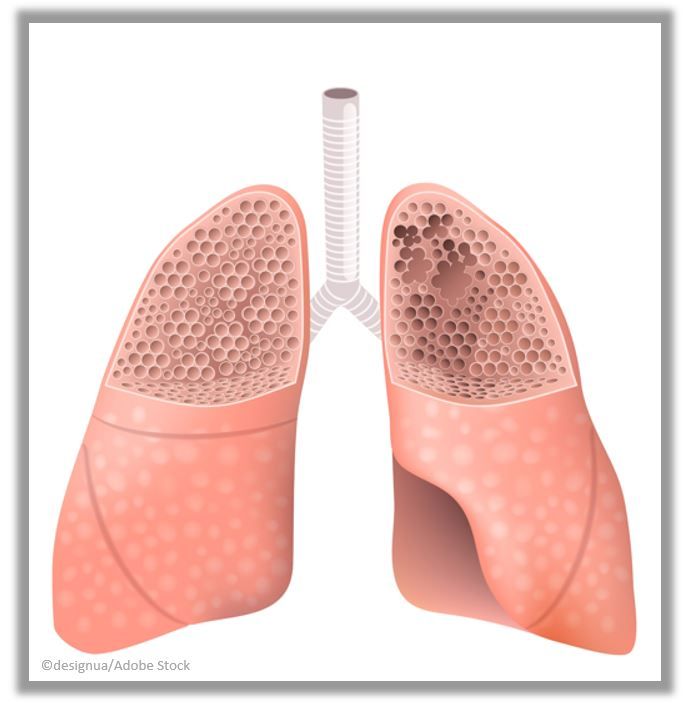- Clinical Technology
- Adult Immunization
- Hepatology
- Pediatric Immunization
- Screening
- Psychiatry
- Allergy
- Women's Health
- Cardiology
- Pediatrics
- Dermatology
- Endocrinology
- Pain Management
- Gastroenterology
- Infectious Disease
- Obesity Medicine
- Rheumatology
- Nephrology
- Neurology
- Pulmonology
Dupilumab Achieves Outcomes in Phase 3 COPD Clinical Trial "Never Before Seen with a Biologic"
In adults with uncontrolled chronic obstructive pulmonary disease (COPD) and evidence of type 2 inflammation, the biologic agent dupilumab was associated with a 30% reduction in disease exacerbations compared to placebo as well as with rapid and significant improvement in lung function, quality of life (QoL) and COPD respiratory symptoms.

The findings, from the pivotal phase 3 BOREAS clinical trial and announced March 23 by development partners Sanofi and Regeneron, suggest dupilumab may become the first biologic to treat COPD, a potentially fatal lung disease for which no new treatments have been approved in more than 10 years.
“Change cannot come quick enough for people living with uncontrolled COPD, but unfortunately, many investigational treatments have failed to demonstrate significant clinical outcomes leaving these vulnerable patients with limited treatment options. We took a bold approach with our direct-to-Phase 3 program, shaving years off standard clinical development timelines,” said Dietmar Berger, MD, PhD, Sanofi head of global R&D ad interim and chief medical officer.
BOREAS enrolled 939 adults aged 40 to 80 years who were current or former smokers with uncontrolled moderate-to severe COPD. All study participants had evidence of type 2 inflammation as measured by a blood eosinophil count of ≥300 cells/µL and all were receiving maximal standard of care, ie triple therapy of inhaled corticosteroids.
Participants were randomized to receive dupilumab (n=468) or placebo (n=471) every 2 weeks over the 52-week study period. The study’s primary endpoint evaluated the annualized rate of acute moderate or severe COPD exacerbations; key secondar endpoints included change from baseline in pre-bronchodilator forced expiratory volume in 1 second at 12 and 52 weeks; change from baseline at 52 weeks in QoL as measured by the St George’s Respiratory Questionnaire; and, change from baseline at 52 weeks in severity of COPD respiratory symptoms as measured by the Evaluation Respiratory Symptoms: COPD (E-RS: COPD) Scale.
BOREAS participants who received dupilumab experienced:
- 30% reduction in moderate or severe acute COPD exacerbations over 52 weeks (P=.0005), the primary endpoint.
- Improved lung function from baseline by 160 mL at 12 weeks compared to 77 mL for placebo (P<.001), with the benefit versus placebo sustained through week 52 (P=.0003), both of which were key secondary endpoints.
Describing COPD as a “notoriously difficult-to-treat disease, George D. Yancopoulos, MD, PhD, Regeneron president and chief scientific officer added that “In this landmark phase 3 trial, patients with uncontrolled COPD achieved clinical outcomes with Dupixent at a magnitude never before seen with a biologic. These results also validate the role type 2 inflammation plays in driving COPD in these patients, advancing the scientific community’s understanding of the underlying biology of this disease. We look forward to discussing these exciting results with regulatory authorities.” Yancopoulos also is a principal inventor of Dupixent, according to press statements.
Findings on the safety of dupilumab in COPD patients were consistent with drug’s known safety profile in its approved indications. Overall adverse event rates were 77% for dupilumab and 76% for placebo with headache, diarrhea, and back pain more commonly observed with dupilumab.
Dupilumab is a fully human monoclonal antibody (mAb) that inhibits signaling of the interleukin (IL)-4 and IL-13 inflammatory pathways. The mAb does not suppress human immunity, according to the manufacturers. Dupilumab has approved indications for multiple other diseases driven by type 2 inflammation including atopic dermatitis, asthma, chronic rhinosinusitis with nasal polyposis, and eosinophilic esophagitis.
Statements from Sanofi and Regeneron indicate that detailed findings on efficacy and safety results from BOREAS will be presented at an upcoming scientific forum.
